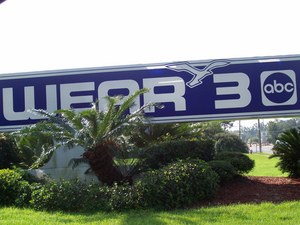Seeing the word “Oil!” on the face of a book probably was the equivalent of grabbing someone by the bow tie and telling someone right in the face to pay the hell attention. In 1927, things were fairly happy-go-lucky in America with the stock market being bullish and people not worrying about the potentials of things going wrong. California (or at least Hollywood) might have been the most hedonistic during the 1920’s, too. That’s where author/muckraker Upton Sinclair decided to live right before WWI started in America, when Hollywood was on the cusp of taking over the southern regions of the state and when big business prospects were starting to brew. Once those high-end industries were hard to ignore, Sinclair went after them in his books.
Before he did that, he was already quite well-known in not only the writing world but also in Washington, D.C. for his revealing “The Jungle” that managed to get sweeping changes in how meat was processed in this country (hence the forming of the FDA). This was back in the day when a book could get into the hands of the President of the United States (in the case of “The Jungle”–Teddy Roosevelt), create major concern and then the President actually taking action to make the difference in the betterment of the population. By 1927, when Sinclair was writing about the dangers of how the oil industry was corrupting America’s population enamored with big business–the action of the President of the United States had obviously become useless when our government encouraged free enterprise.
Well, Sinclair understood that even his enacting of change with “The Jungle” couldn’t lead to all the changes that he really wanted by writing the book in the first place. Getting fair wages and overall better living conditions for meat plant workers was his goal when he wrote “The Jungle.” When that didn’t happen, he probably didn’t expect to reform society with “Oil!” Nevertheless, he brought a lot of beauty to muckraking behemoth industries permeating America. Giving a compelling statement about the direction of big business with “Oil!” possibly even exceeded his work on “The Jungle.”
As some probably know, director Paul Thomas Anderson ran across the novel “Oil!” and decided to write a new screenplay based on the book. Originally, he was going to keep the same story intact–but later changed the main character names as well as the title to “There Will Be Blood.” Subsequently, he managed to write one of the most compelling and revealing American movies of the 21st century if not part of the 20th. The film stands alone–and so does the book “Oil!” How the characters differ, though, is quite fascinating. Both the book and the movie reveal things about America that makes them excellent companions to examining how we managed to where we are now in our business interests and principles through this country’s path to the 21st century.
Joe Ross vs. Daniel Plainview…
Let’s just start by saying Daniel Plainview is much more ruthless in “There Will Be Blood.” Joe Ross in “Oil!”, however, is somebody who has some unknown back story that we don’t get to see as we do with Plainview in “Blood.” Daniel Plainview has quite a dramatic backstory as we see in the film, how he catches the oil bug when working in a silver claim he owns before the 20th century begins, and setting a status for himself as the quintessential American of being successful in big business and raising a child. That involves adopting a son from a worker killed in his silver mine–which differs from Joe Ross who’s son Bunny is truly his blood son.
Of course, having Plainview adopting a child gives more drama as he slowly becomes more corrupt. It hits a nerve when adoption is the ultimate commitment in a life–especially if you’re doing it as a duty to someone else. The advantage to Joe Ross and Bunny, however, is that you have a real father and son who will later collide in their sense of politics and ethics in the business world. Both fathers try to teach the ways of how to succeed in the oil industry at a time when the son is the most impressionable and usually succeeds in assimilating everything their father does, right or wrong.
Both stories take place in California where Sinclair went after the (in)famous Signal Hill oil field that was located near Los Angeles in the early 1920’s. Sinclair’s story is strictly one of the 1920’s and all its sense of greed and hedonism. Paul Anderson’s story is a wider vista of different decades to show the gradual change in America’s business interests and values. Wisely, we first see 1898, then 1911, up to about WWI–and finally 1927…when “Oil!” was written (obviously a nod to the publishing date).
As with Plainview–Joe Ross makes unscrupulous deals along the way in order to keep stepping on people to get to the top in the oil industry. Both have a falling out with their sons, but for different reasons. And Joe Ross doesn’t have a tragic outcome as Plainview does. In fact, Joe becomes the back-focus in “Oil!” as it mostly delves into Bunny Ross’s self-education in what’s both right and wrong with America during a time of more change than casual history buffs care to know.
Bunny Ross vs. H.W. …
It seems fairly obvious that H.W. is possibly a less-than-subtle abbreviation for “Herbert Walker”–aka George H.W. Bush. That probably shouldn’t be said so “There Will Be Blood” will be attacked for being a left-leaning film when so many others recently have that make a statement about our country. The film deserves to stand alone as an important piece of truth in American history when we need to digest the bitter truths about our past and how we can avoid having it happen again. Movies help us digest those things a little easier–and H.W. in “Blood” gives us that central character for hope in the future. The differences between H.W. and Bunny Ross in “Oil!” are considerable, though.
Bunny Ross becomes the central focus of Sinclair’s “Oil!” later in the story–yet has strong conflicts with his father, Joe. Sinclair actually showed the reality that families get torn apart by widely divided politics–because Bunny becomes a liberal who rallies against the extreme right-wing big business his father is and stays for the rest of his life. For H.W., he ends up becoming disabled via losing his hearing from an explosion set off from his adoptive father’s company digging for oil. This creates more of a complex situation in Plainview (who’s already losing sight of his principles by this time) and communicating with his son when the two desperately need to communicate.
Both of them have their own eventual journeys, even though Bunny Ross’s journey is much more detailed and ultimately fated for a more satisfying life. Ironically, Bunny becomes very wealthy, yet stays a staunch liberal and consistently fighting for the rights of the oil workers and other working-class people. He manages to learn about poverty first-hand when tagging along with his father who doesn’t seem to see a thing. H.W. ultimately disappears into the background for a while in “Blood.” We have to guess what kind of epiphanies he has during that period of time he spends in a deaf school until Plainview takes his son back again out of the mounting guilt that still comes through amid his continuing business obsessions.
Once “Blood” jumps to 1927, it seems H.W. has been assimilated into the oil industry while seemingly keeping a conscientious attitude. His father sinks into alcoholism and near-madness from unscrupulous business deals and having nowhere else to go to assuage his near-constant desire to topple a competitor. H.W. also gets married and is shown wanting to become independent by breaking away from the partnership he formed with his father in the oil business. The result doesn’t come out well. We still assume, though, that H.W. will go on to become an oil businessman with some scruples–despite never really knowing.
Beyond that, it’s interesting to see the trajectories of Plainview and Joe Ross. Joe ends up being a bit of a contradiction for emotions as many successful men in history–who seem unscrupulous at the surface–have at least a shred of decency under their thick skins that makes us bestow some sympathy through the prism of a fictional drama. Even with Plainview, we garner some sympathy when we realize that getting on the runaway train of big business seems to be an automatic byway to corruption. Of course, Plainview has no sense of spirituality to counter all that. He admits all of that to the rotten core with one equally-conflicted character who keeps the same first name in both “Oil!” and “Blood”…
Eli Watkins vs. Eli Sunday…
Eli Watkins in “Oil!” turns up periodically in the story–but actually becomes a famous preacher akin to Eli Sunday in “Blood” who becomes a well-known faith healer at his self-created church. Watkins has the twin brother, Paul, just like Eli Sunday does. Nonetheless, Paul Watkins runs away from his Christian family when young and ends up destitute on the streets for years where he encounters Bunny Ross at one point.
Both Eli’s are contradictions for what they stand for–with Eli Watkins having a secret affair with a young woman (as he two-facedly preaches against such actions during his widely-heard sermons) and Eli Sunday using people (particularly Plainview in one haunting situation) to get what he wants to get money for his church.
Both characters are possibly the equal of one another (the only character that doesn’t change that much from the book)–except Eli Sunday is the one who has a fate that comes out of nowhere at the end of “Blood” when meeting with Plainview. This particular action gives us the haunting notion that those who were already powerful in big business decades ago, who lived for competitiveness and believed they deserved anything, could end up doing a particular action that would crumble their entire world…
___
Read the novel “Oil!” first before seeing the darker “Blood” to get an even more sweeping vision of a neglected part of American history…



